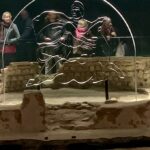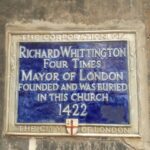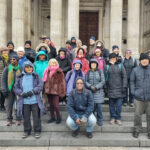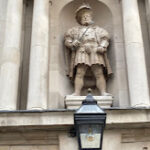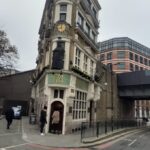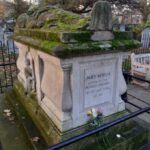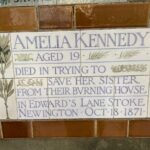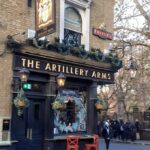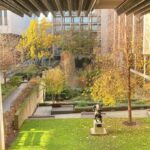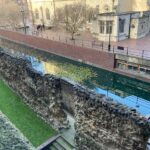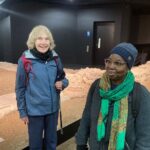Thirty one Polyramblers including one new member, welcome Shola, joined me in near freezing conditions for a gentle walk through the streets of the City of London. This square mile is the oldest part of London dating back to AD50 when the invading Romans established a settlement they called Londinium.
Most of us started the walk with a visit to the Mithraeum which displays the ruins of the Roman Temple of Mithras that stood on this site 2000 years ago. A short sound and light show attempts to recreate the rituals of the Mythrean cult practiced by the Roman army. Sections of the old City wall were viewed, the best preserved being adjacent to the church of St Giles without Cripplegate close to our much needed lunch break at the Barbican Centre. We also saw remains of the Roman fort and visited those of the amphitheatre beneath the Guildhall Art Gallery with its graphics cleverly showing how it would have originally appeared when it had a capacity not far off that of the Royal Albert Hall.
The walk also focused on Medieval London. We saw several Livery Halls and many churches often rebuilt by Sir Christopher Wren after the Great Fire of London and the sites of several public executions and red light districts.
A visit to the church of St Bartholomew the Great, the finest Norman church left in London, afforded a welcome escape from the cold. Used in many films it is home to stunning contemporary pieces of art including Damien Hirst’s Exquisite Pain, The Risen Christ by Josephina de Vasconcellos and Roldan’s Madonna and Child.
We also visited Postman’s Park with its unique memorial wall to heroic ordinary men, women and children which was created in 1900 by the Victorian painter and sculptor George Frederic Watts. Briefly entering Islington we saw Peabody buildings and walked through the historic Burnhill Field cemetery burial place for London non-conformists including such great poets and writers as Milton, Defoe, Blake and Bunyan.
Jennifer.
Photos by Chris, Shola, Nita and Stuart


